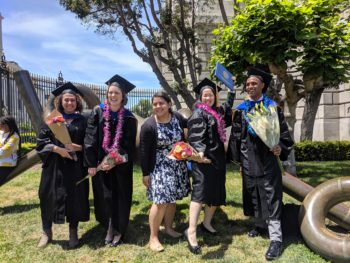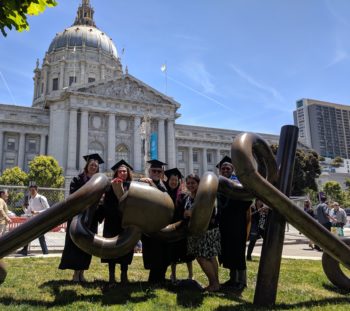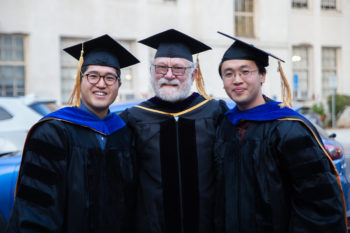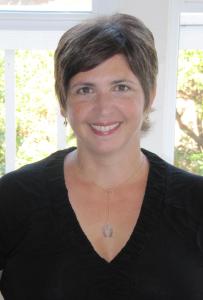On to our next Big Adventure! Altos Labs!
Altos Labs launches with the goal of transforming medicine through cellular rejuvenation programming
SAN FRANCISCO, Jan. 19, 2022 /PRNewswire/ — Altos Labs launched today as a new
biotechnology company dedicated to unraveling the deep biology of cellular rejuvenation
programming. Altos’ mission is to restore cell health and resilience to reverse disease, injury,
and disabilities that can occur throughout life. The company launches with a community of
leading scientists, clinicians, and leaders from both academia and industry working together
towards this common mission.
Altos Labs
The Altos executive team will be composed of Hal Barron, MD (incoming CEO), Rick Klausner,
MD (Chief Scientist and Founder), Hans Bishop (President and Founder), and Ann Lee-Karlon,
PhD (Chief Operating Officer). Hal Barron is currently President of R&D and Chief Scientific
Officer at GSK and will join Altos as CEO and Board co-chair effective August 1, 2022. Klausner
was former director of the National Cancer Institute and entrepreneur, Bishop was former CEO
of GRAIL and Juno Therapeutics, and Lee-Karlon was former Senior Vice President at
Genentech.
Altos will be initially based in the US in the San Francisco Bay Area and San Diego, and in the
UK in Cambridge. The company will also have significant collaborations in Japan. Set within
these geographies, activity will be organized across the Institutes of Science and the Institute of
Medicine. The Altos Institutes of Science will pursue deep scientific questions and integrate
their findings into one collaborative research effort. The Altos Institute of Medicine will capture
knowledge generated about cell health and programming to develop transformative
medicines.
The three Altos Institutes of Science will be led by Juan Carlos Izpisua Belmonte, PhD, Wolf
Reik, MD, and Peter Walter, PhD. Thore Graepel, PhD, will serve as global head of computational
science, artificial intelligence, and machine learning. Prior to joining Altos, Izpisua Belmonte
was professor and chair at the Salk Institute, Reik was director of the Babraham Institute and is
an honorary professor at the University of Cambridge, and Walter was professor at the
University of California, San Francisco (UCSF) and investigator at the Howard Hughes Medical
Institute. Graepel previously served as research lead at Google DeepMind and professor at
University College London. Within the Institutes of Science, an extraordinary group of Principal
Investigators (PIs) will collaboratively pursue the many aspects of cell health and programming.
A full listing of PIs is found at altoslabs.com.
The Altos Board of Directors and advisors include Nobel Laureates and scientific leaders. The
Board will be co-chaired by Rick Klausner, Hans Bishop, and Hal Barron (current director and
incoming co-chair) and includes the following Board directors: Frances Arnold, PhD (Linus
Pauling Professor of Chemical Engineering, Bioengineering and Biochemistry at the California
Institute of Technology and Nobel Laureate), Hal Barron, MD (Chief Scientific Officer and
President, R&D, of GSK), Jennifer Doudna (Li Ka Shing Chancellor’s Chair and Professor of
Chemistry and Molecular and Cell Biology at the University of California, Berkeley, President of
the Innovative Genomics Institute, and Nobel Laureate), Maria Leptin, PhD (President of the
European Research Council), Robert Nelsen (Co-founder and Managing Director of ARCH
Venture Partners), Rajiv Shah, MD (President of the Rockefeller Foundation), and David
Baltimore, PhD (President Emeritus and Judge Shirley Hufstedler Professor of Biology at the
California Institute of Technology and Nobel Laureate), as lead independent director. Shinya
Yamanaka, MD, PhD (Director of the Center for iPS Cell Research and Application at Kyoto
University and Nobel Laureate), will serve as senior scientific advisor to Altos without
remuneration, overseeing research activities in Japan.
“I am deeply honored to have been offered this once in a lifetime opportunity to lead such a
unique company with a transformative mission to reverse disease,” said Hal Barron. “It’s clear
from work by Shinya Yamanaka, and many others since his initial discoveries, that cells have the
ability to rejuvenate, resetting their epigenetic clocks and erasing damage from a myriad of
stressors. These insights, combined with major advances in a number of transformative
technologies, inspired Altos to reimagine medical treatments where reversing disease for
patients of any age is possible.”
Altos is designed to integrate the best features of academia and industry — from academia the
freedom to pursue the most challenging problems in biology, and from industry the focus on a
shared mission, ability to foster deep collaborations, and the passion and commitment to
transform science into medicines.
“Altos seeks to decipher the pathways of cellular rejuvenation programming to create a
completely new approach to medicine, one based on the emerging concepts of cellular
health,” said Rick Klausner. “Remarkable work over the last few years beginning to quantify
cellular health and the mechanisms behind that, coupled with the ability to effectively and
safely reprogram cells and tissues via rejuvenation pathways, opens this new vista into the
medicine of the future. Altos begins with many of the leading scientists who are creating this
new science. Together, we are building a company where many of the world’s best scientists
can collaborate internally and externally and develop their research with the speed, mission,
and focus of private enterprise. Our success will depend upon a culture of intense collaboration,
enthusiasm, and openness.”
“Building a company with extraordinary ambition requires extraordinary people,” said Hans
Bishop. “It will also require building an innovation culture that brings out the best in people
from very diverse backgrounds. We aim to amplify the best attributes of academia and
companies with the goal to accelerate problem solving. I’m excited to be joining a team with
such an inspiring mission and the internal ambition of building a company where all of us can
say that we are doing our very best work.”
Frances Arnold, Board member and Nobel laureate, believes that “Altos offers a whole new
research and development model targeted to the oldest of human problems, slowing and even
ultimately reversing the effects of disease. This remarkable team is poised to discover secrets of
cellular health and transform the way we think about disease. Now more than ever is the time
to restructure our approach to health by understanding, slowing, and even reversing the
processes that lead to illness and death.”
“As a geneticist and developmental biologist, I find great promise in the emerging recognition
that the metabolic control of cell health contributes decisively to the ability of an organism to
tolerate major systemic insults from congenital and infectious disease to stress and aging,” said
Maria Leptin, Board member and ERC president. “As a committed believer in curiosity-driven
research, I welcome a broad approach to trying to understand the fundamental cellular
principles involved in returning the stressed organism to a healthy equilibrium state.”
Shinya Yamanaka, senior scientific advisor and Nobel laureate, said, “I am delighted to be a part
of Altos and believe it to be one of the most important and exciting new global scientific
endeavors. The possibility of rejuvenation programming has only recently become a scientific
reality and has the potential to enable us to approach human disease in an entirely new way. I
am glad that I will help scientists in Japan to work in this exciting field.”
“I am honored to serve as the lead independent Director of the newly formed Altos Labs,” said
David Baltimore, Board member and Nobel laureate. “Altos will build on the remarkable
developing understanding of the alterations of cells as they participate in the myriad processes
of the human body over its lifespan. The goal of Altos will be to reverse the ravages of disease
and aging that lead to disability and death, reinvigorating and extending the quality of life.
Altos will provide an unparalleled environment for collaborative discovery and has already
attracted a most impressive group of investigators to the daunting task of reversing ill health
and taking medicine in a new direction.”
About Altos Scientific Leadership
The Altos Bay Area Institute of Science will be led by Peter Walter, Ph.D., whose research has
focused on developing a molecular understanding of how cells control the quality of their
proteins and organelles during homeostasis and stress. Dr. Walter is the recipient of numerous
awards, including the Shaw Prize, the Lasker Award for Basic Medical Research, the Vilcek Prize
for Biomedical Science, and the Breakthrough Prize in Life Sciences. He is a member of the
National Academy of Sciences, the American Academy of Arts and Sciences, the National Academy
of Medicine, and the National Academy of Inventors. Prior to joining Altos, Dr. Walter was
a professor in the Department of Biochemistry/Biophysics at the University of California, San
Francisco (UCSF) and an investigator at the Howard Hughes Medical Institute.
The Altos San Diego Institute of Science will be led by Juan Carlos Izpisua Belmonte, PhD. Dr.
Izpisua Belmonte is a pioneer in the field of regenerative medicine. He has developed
numerous strategies to improve health, including tissue and organ regeneration and cellular
and organismal rejuvenation. He was the recipient of a National Science Foundation Creativity
Award, a National Institutes of Health Director’s Pioneer Award, the William Clinton Presidential
Award, the Pew Scholar Award, the Gold Medal of Castilla-La Mancha, and the Roger Guillemin
Endowed Nobel Chair. Prior to Altos, Dr. Izpisua Belmonte was professor in the Gene Expression
Laboratory and the Roger Guillemin chair at the Salk Institute in La Jolla, California.
The Altos Cambridge (UK) Institute of Science will be led by Wolf Reik, MD. Dr. Reik is a leader
in epigenetic reprogramming of mammalian cells, honorary professor of Epigenetics at the
University of Cambridge, and served most recently as director of the Babraham Institute in
Cambridge. He is the recipient of the Wellcome Prize in Physiology and is a member of the
European Molecular Biology Organisation and the Academia Europaea, a Fellow of the
Academy of Medical Sciences and of the Royal Society.
Altos will also support activities in Japan, guided by Shinya Yamanaka, MD, PhD, who will serve
as Altos senior scientific advisor without remuneration. Dr. Yamanaka is among the world’s
leading authorities on stem cell science and is a recipient of the 2012 Nobel Prize in Physiology
or Medicine for the discovery of induced pluripotent stem cells. He currently serves as the
director of the Center for iPS Cell Research and Application (CiRA) at Kyoto University and a
senior investigator at the Gladstone Institutes.
Across all aspects of Altos will be a commitment to computational science, machine learning,
and artificial intelligence with activities led by Thore Graepel, PhD. Graepel was most recently
research lead at Google DeepMind and chair of Machine Learning at University College London
and is one of the foremost minds on how to build more intelligent systems and agents that
learn from experience.
About Altos Labs
Altos LabsTM (AltosTM) is a biotechnology company focused on cellular rejuvenation
programming to restore cell health and resilience, with the goal of reversing disease to
transform medicine. The company comprises a community of leading scientists, clinicians, and
leaders from both academia and industry working together towards this common mission.
Altos has operations in the San Francisco Bay Area and San Diego, and in Cambridge, UK, with
significant collaborations in Japan.
Visit www.altoslabs.com to learn more about Altos, including a full list of our senior scientists
and leaders.
Congratulations to Peter!
UCSF 2020 Lifetime Achievement in Mentoring Award Recipient – Peter Walter, PhD
Throughout Peter Walter’s 38 year career at UCSF, one of his greatest joys is mentoring young scientists. He is friend, a confidant, advisor, and champion for his mentees. Within his lab and the community at large, Peter has served as a mentor for almost 200 students, postdocs, and faculty members, many of whom have who have made groundbreaking discoveries and become leaders in their respective fields of study.
Congratulations, 2019 Walter lab Graduates!

(l to r) Drs. Aylin Göke, Kelly Crotty, Sandra Torres, Mable Lam & Aditya Anand

Congratulations 2018 Walter lab graduates Jordan Tsai and Weihan Li!

Congratulations to Walter lab Graduate Student Alumni, Jodi Nunnari, on her election to the National Academy of Sciences!

https://www.ucdavis.edu/news/cell-biologist-jodi-nunnari-elected-national-academy-sciences
Peter’s 2016 ASCB President’s Columns
ASCB President’s Column – November 2016
On Publishing and the Sneetches: A Wake-up Call?* by Peter Walter & Dyche Mullins
Two institutions—learned societies and scientific journals—midwifed a scientific revolution in the 17th century that still dominates our professional lives today. Learned societies like the ASCB remain relevant because they provide forums for sharing results, discussing the practice of science, and projecting our voices to the public and the policymakers. Scientific journals still disseminate our work, but in the Internet-connected world of the 21st century this is no longer their critical function. Journals remain relevant today almost entirely because they provide a playing field for scientific and professional competition: To claim credit for a discovery, we publish it in a peer-reviewed journal; to get a job in academia or money to run a lab, we present piles of these published papers to universities and funding agencies. Publishing is so embedded in the practice of science that whoever controls the journals controls access to the entire profession. It is, therefore, worth examining to whom we have entrusted the keys to the kingdom of science …
ASCB President Column / October 2016 – “On Research Funding and the Power of Youth” By Arshad Desai, Peter Walter and Tony Hyman
A person who has not made his great contribution to science before the age of thirty will never do so.” While this quip of Albert Einstein’s certainly does not generally apply to cell biologists, it is well recognized that innovation in science and technology tends to be driven by youth. We only have to look at pioneers of Silicon Valley, physics at the turn of the 20th century, or the average age at which Nobel prize winners perform their ground-breaking work (Figure 1) to remind ourselves that any society that wishes to push true innovation needs to enable its young investigators. Tangibly, it needs to fund their research based on promise, and it needs to promote their paths to early independence …
ACSB President Column / June 2016 – “On Careers and 42” By Peter Walter
What is the secret to a successful career in science?” is a question that I often encounter when meeting with students and postdocs at various institutions. It is a loaded question to which there is no tangible answer, and I always enjoy the discussion that follows …
ASCB President Column / April 2016 – “On Reproducibility and Clocks” By Peter Walter
Reproducibility in scientific research has recently become a hot topic of immense importance to our community. Reports on the unreliability of published research have severely tarnished the image of our profession, as exemplified by an article entitled “How science goes wrong” published in the The Economist in 2013.4 Publishing bad science is bad for all of us. As a community we need to realize the importance of this issue and the major efforts that are underway to respond. In 2014, the ASCB convened a task force that issued a white paper,5 which includes tangible and constructive recommendations on how to improve current publication methods and standards, to ensure the publication of high-quality data. This is an excellent, must-read document, and I urge every researcher and publisher to implement its recommendations …
What is the Unfolded Protein Response? Got 3 minutes?
The animated video titled “What is the Unfolded Protein Response?” provides a simple explanation for a complex biological process. The unfolded protein response is the basis for a broad range of disease research, including diabetes, cancer and neurodegenerative diseases, typically not an easily understandable concept for the general public. This video targeted a 12th-grade comprehension level to make this concept accessible to a wider science audience.